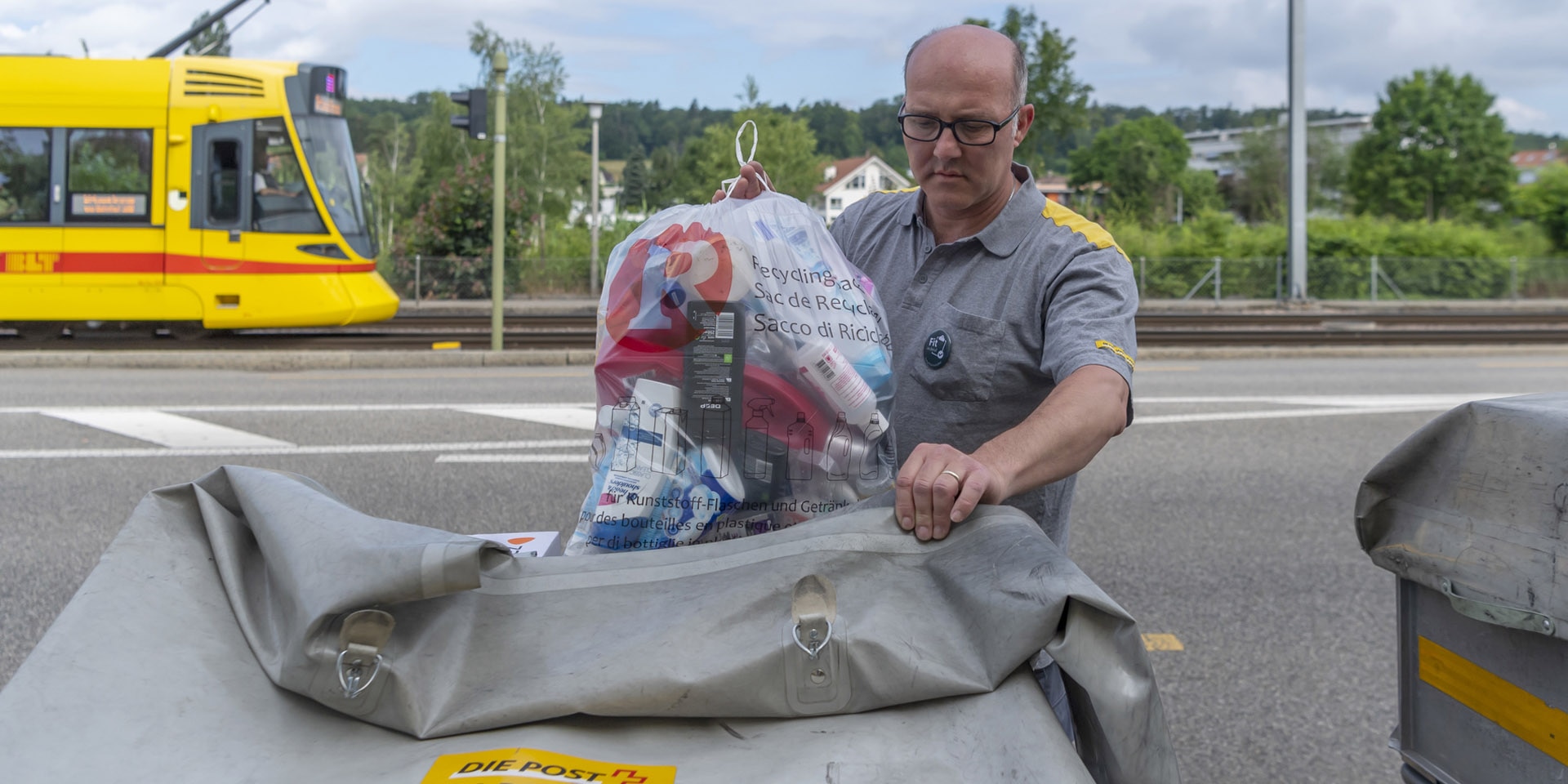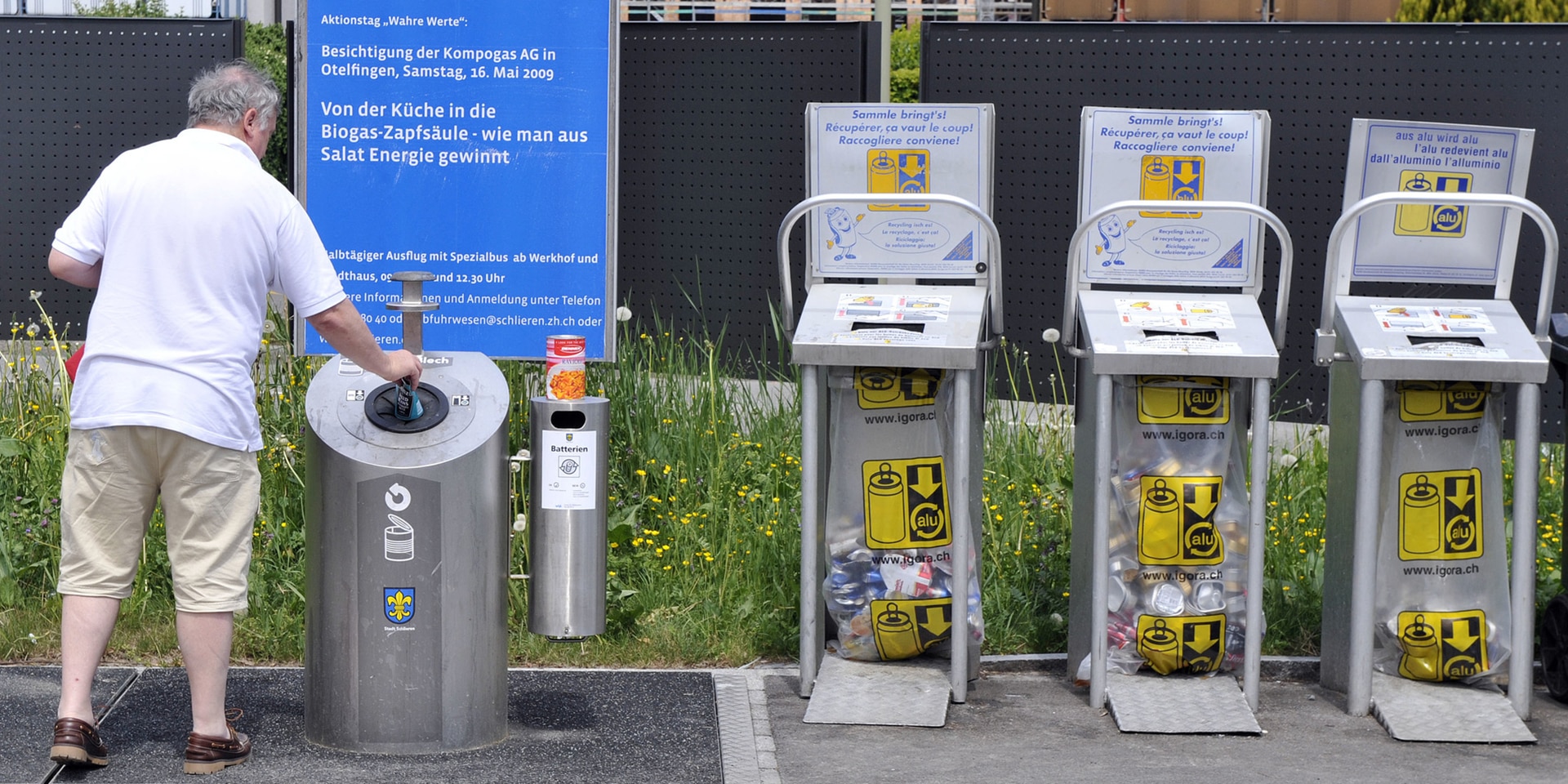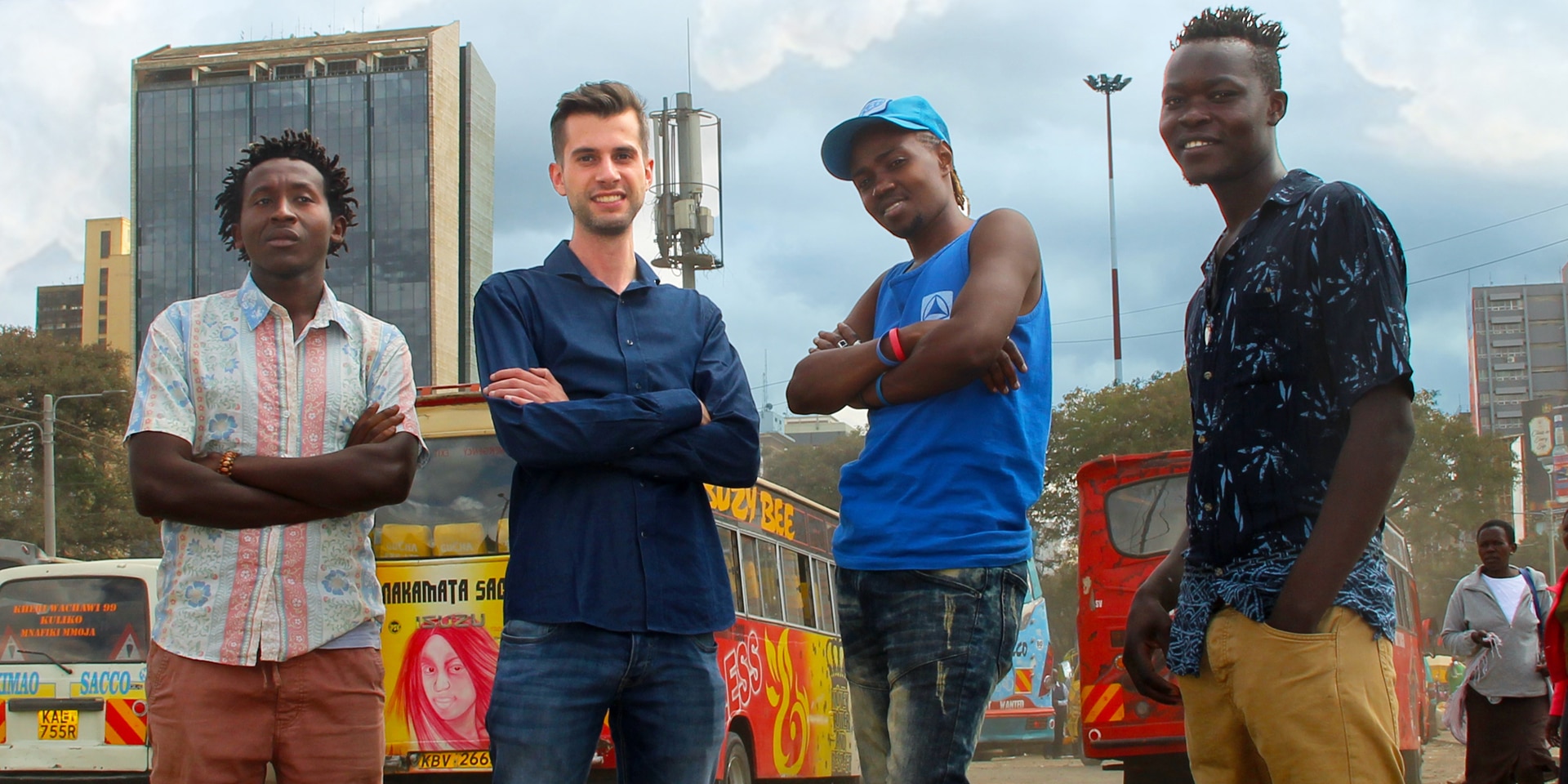"Switzerland must pick up the pace to achieve the 2030 Agenda goals"
On 12 July 2022, Switzerland presented its second country report on progress in implementing the 2030 Agenda for Sustainable Development to the UN member states in New York. Jacques Ducrest, the Federal Council Delegate for the 2030 Agenda, believes Switzerland is on track, but must step up the pace to achieve the Sustainable Development Goals (SDGs) by 2030. Read more in the interview.
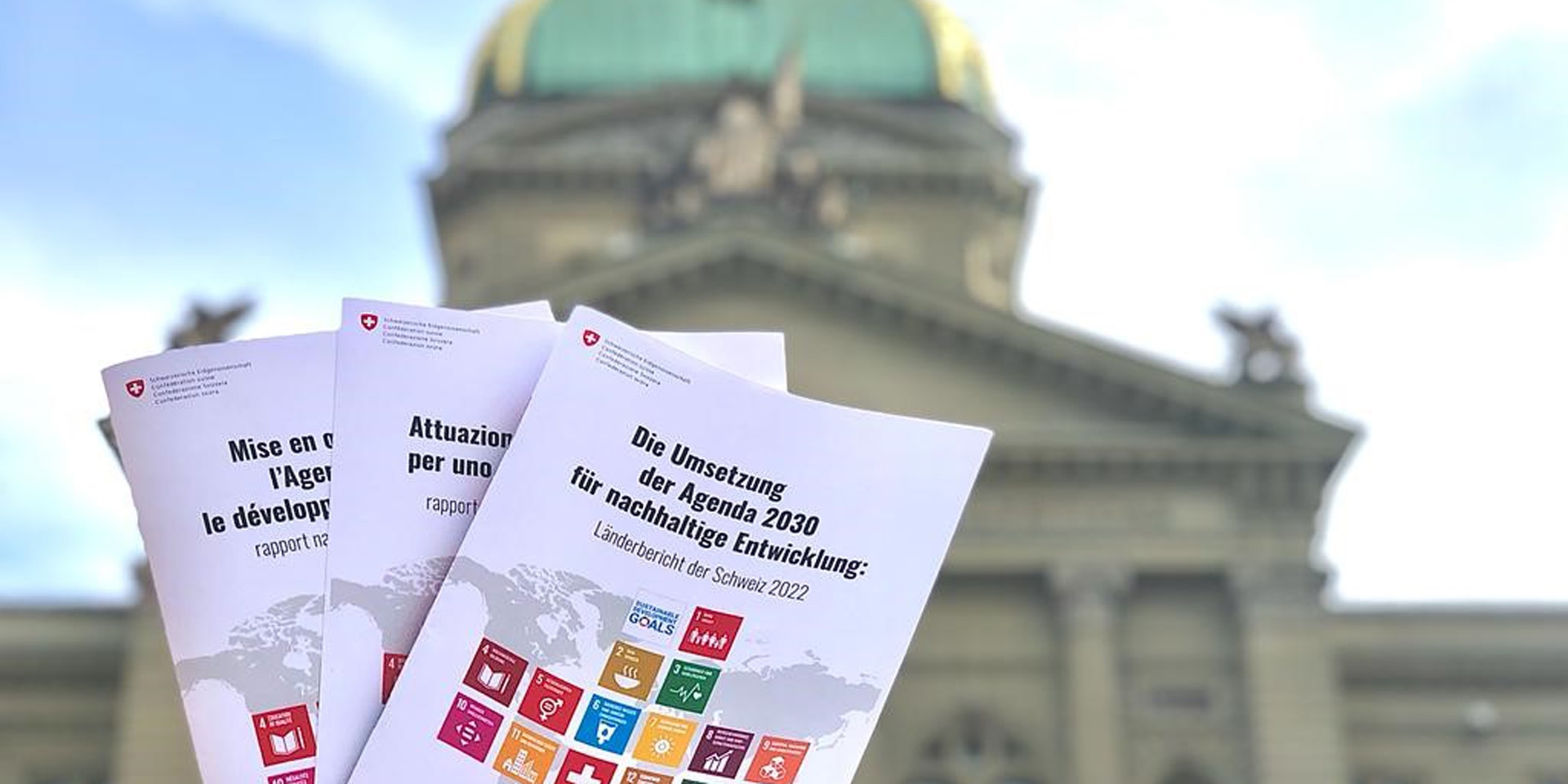
Switzerland has made a political commitment to implement the 2030 Agenda for Sustainable Development. © FDFA
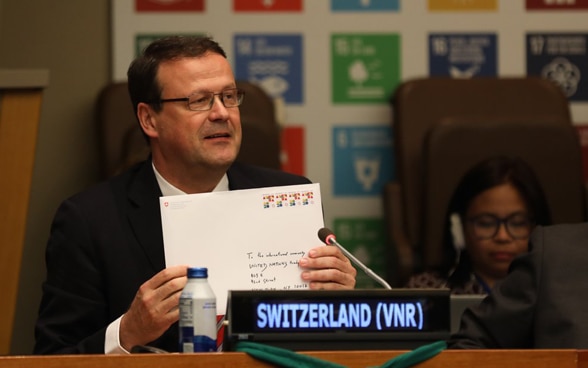
Jacques Ducrest, Switzerland presented its first country report four years ago. Can you give any specific examples of progress made since then?
The number of women in the National Council, which has climbed from 32% to 42% since 2015, can be viewed as major progress in terms of gender equality. Switzerland has also made great headway in developing renewable energies and improving energy efficiency. Power consumption per capita is decreasing in Switzerland overall. That's good news, especially for SDG 7 'affordable and sustainable energy'. But the geopolitical situation with the conflict in Ukraine highlights our global dependence in relation to energy and underlines the vital importance of expanding renewable energies.
What has Switzerland done to attain the 2030 Agenda goals?
The Federal Council has driven the 2030 Agenda forward by firmly embedding it in a new organisational structure. Representatives of all federal departments as well as the Federal Chancellery were and still are involved in this process. The 2030 Sustainable Development Strategy, but also the 2022 country report, were drawn up on a broad basis. In Switzerland's decentralised political system, transversally embedding the Agenda in this way represents significant progress.
The adoption of the 2030 Agenda signified a paradigm shift structurally. The 2030 Agenda's principle of universality, which means that all countries of the world – from the Global South to the Global North – contribute towards its implementation, has definitely been embraced in Switzerland.
Swiss actors from the economy, science, NGOs and communes were involved in producing the country report. Who is particularly relevant in terms of contributing towards attaining the SDGs – and what are the key areas?
The 2030 Agenda concerns the whole of society. We can all play our part, for example by separating our waste, supporting our communities or by talking to our children about conserving natural resources.
But it'll take much more than individual commitment and decisions, as it's primarily down to the federal government, the cantons and the communes but also the business community to create the right framework to enable good decision-making. Close collaboration between all actors and careful weighing-up of all of society's interests is what's called for to ensure integral implementation.
What steps has the federal government taken to foster the type of close cooperation needed?
To assess the diversity of Switzerland's commitment to sustainable development, the federal government carried out a broad-based review last year in which actors from the economy, science and civil society participated in addition to the federal administration, cantons and communes. The results have been published on the new website www.SDGital2030.ch. They reveal that not everyone's pulling in the same direction.
The activities of civil society organisations are listed as well as federal government measures. The aim of presenting the various activities is to highlight the similarities and common ground and to encourage networking in the various specific areas. Any organisations interested in cooperating can also do so via the 'SDGital2030' site.
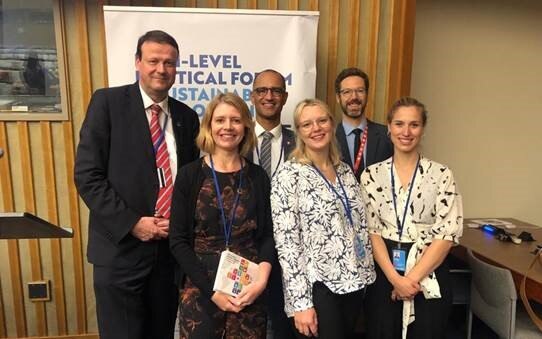
The country report indicates that Switzerland needs to step up the pace to achieve the SDGs. Which are the key areas in this respect?
In its 2030 Sustainable Development Strategy, the Federal Council set out three priorities: sustainable consumption and production; climate, energy and biodiversity; and promotion of equal opportunities and social cohesion.
Let's take the first priority as an example. The consumption and production patterns of industrial nations, like Switzerland, are based on high consumption of resources. High per-capita income means the population can afford more products and is also more wasteful. If everyone's consumption levels were the same as those of Swiss people, almost three planets would be needed to meet demand.
Individual decision-making can also make a crucial contribution to achieving change here. For example, by consuming more local products and reflecting on what our real needs actually are. Do we really need to acquire more or should what we already have be used more sustainably? It's the little things that can make a difference, but the economy and financial system also possess huge potential for bringing about change. We're seeing that sustainability is increasingly being perceived as an integral part of the business model – by both customers and companies.
Switzerland was one of the first ever countries to present a country report in 2016 (followed by 2018). How much progress has now been made in implementing the 2030 Agenda?
The optimism abounding when the 2030 Agenda was adopted in 2015 has given way to a certain degree of disillusionment. The world is facing a whole series of crises which are complicating the attainment of the SDGs and the implementation of the 2030 Agenda.
The ongoing COVID-19 pandemic has wiped out the progress made in tackling poverty. 93 million more people are living in extreme poverty today than before the pandemic. An estimated 147 million children missed over half of their school lessons over the past two years. Women are affected by the socio-economic consequences of the pandemic to a disproportionately high extent, for example due to the growing burden of unpaid care provision.
The international community will now have to make a tremendous effort to recover from the COVID-19 pandemic while also still achieving the global SDGs. The political will to jointly achieve the SDGs by 2030 – without leaving anyone behind – must also be strengthened.
Links
- Press release, 2030 Agenda: President Cassis calls for innovation, diversity and determination to implement the Sustainable Development Goals, 12.07.2022.
- Press release, Federal Council adopts second country report on implementation of 2030 Agenda for Sustainable Development, 04.05.2022.
- Plattform «SDGital2030»
- Agenda 2030 for sustainable development, FDFA
- Country report to the UN

